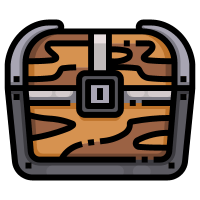- <% result.name %>
Ads keep this site online however. You can upgrade to support the site and enjoy extra benefits! Click to learn more
Discover all Story Shack apps
What is a noun?
A noun is a word that describes a person, place, thing, quality, or action. There are many different types of nouns, and they can be either common or proper. Common nouns are typically used in general terms and are easy to remember. Proper nouns, on the other hand, are specific names and are usually more difficult to remember.
Types of Nouns: Common, Proper, Abstract, Concrete, Mixed and Hyponym
There are six different types of nouns: common, proper, abstract, concrete, mixed, and hyponym. Each has its own specific set of rules that must be followed in order for a sentence to be correct. For example, you must use a proper noun when talking about a specific person or thing, and you can’t use an abstract noun to refer to something concrete. Here are more details on each type of noun:
- Common nouns are the most common type of noun and refer to things that everyone can understand. For example, “dog” is a common noun because it refers to a animal that can be seen by most people.
- Proper nouns are names of specific people or things. For example, “John” is a proper noun because it is the name of a particular person.
- Abstract nouns are words that describe ideas or concepts. You can use an abstract noun as a name for a person, place, or thing, but you cannot use an abstract noun when talking about a person who is alive or something that is concrete.
- Concrete nouns are specific, identifiable things that exist in the world. They are different from abstract nouns, which are concepts or ideas. For example, the word "dog" is a concrete noun because it refers to a specific animal that people can see and interact with. Abstract nouns, such as "justice" or "freedom," are not specific and cannot be seen or touched.
- Mixed nouns are nouns that consist of two parts, a masculine and a feminine. For example, the word "chair" is a mixed noun because it has the masculine chair and the feminine chair. Mixed nouns can be confusing to some people, but they're actually very common in English.
- Hyponym nouns are nouns that are used as an adjective. They are also called collective nouns. For example, the word "group" is a hyponym of "hypothetical group." A hypothetical group is a group that does not exist in reality.
Uses of Nouns: Pronoun Replacement, Subject and Object of a Verb, Gerunds
Nouns can take on many roles in a sentence. For example, they can be used to replace pronouns, act as the subject or object of a verb, or function as gerunds. Here are some examples illustrating these various uses:
- I saw the movie last night. (Pronoun replacement)
- She danced all night. (Subject)
- They ate at Joe's restaurant yesterday. (Object)
- The dog chased the cat around the house. (Gerund)
Possessive Nouns: Apostrophe Usage
There are a few rules to know when it comes to using the apostrophe with possessive nouns. The first thing to remember is that the apostrophe is used to indicate that something belongs to someone, not just something is owned by someone. For example, in the sentence "The cat's toys," the word "cat" is possessive and indicates that there is one cat owning its toys. However, in the sentence "The student's papers," the word "student" is not possessive and indicates that there may be multiple students owning their papers. Another thing to keep in mind when using the apostrophe with possessive nouns is that it can only be used with singular nouns. For example, in the construction "Karl's toys," Karl is the only person mentioned and so the apostrophe is needed.
Plural Nouns: How to Form and Use Them
Different languages have different rules for how to form plurals. Some languages, such as English, use a simple method: add an -s to the singular noun. Other languages, like Spanish, require that the word be modified in some way. For example, en el autos means "in the car," but en los autos means "in cars." In some cases, plurals can be created by adding an -es to the singular noun.
Compound Nouns: What They Are and How to Use Them
Compound nouns are words that are made up of two or more words. They can be created by adding an -ed to a noun, or they can be formed from two separate nouns by putting an -er between them. There are many different types of compound nouns, and each one has its own specific use. Here are some examples: laptop computer, thermos flask, rocket launcher. In order to use a compound noun correctly, you need to know the correct cases and how to form the verb forms.
5 questions to help you come up with nouns
- What objects do you see in your environment?
- What are some common nouns used in your profession?
- What animals do you know of?
- What common nouns are there in the world around you?
- What physical attributes does a noun have?
Can I use the random nouns that this tool creates?
Yes you can. The Story Shack claims no copyright on any of these names, but it is of course possible that some of the values this name generator provides are already owned by anyone else, so please make sure to always do your due diligence.
How many ideas can I generate with this Random Noun Generator?
The Random Noun Generator can generate thousands of ideas for your project, so feel free to keep clicking and at the end use the handy copy feature to export your nouns to a text editor of your choice. Enjoy!
What are good nouns?
There's thousands of random nouns in this generator. Here are some samples to start:
| Idea #1 | charity |
| Idea #2 | disaster |
| Idea #3 | marriage |
| Idea #4 | contribution |
| Idea #5 | appointment |
| Idea #6 | village |
| Idea #7 | distribution |
| Idea #8 | resolution |
| Idea #9 | classroom |
| Idea #10 | drama |
More on nouns across the web
Can't get enough of generating nouns? Then continue exploring:
Discover more random name generators
- Band Name Generator
- Anime Name Generator
- Kingdom Name Generator
- Dwarf Name Generator
- Brand Name Generator
- Girl Name Generator
- Dog Name Generator
- Rap Name Generator
- Superhero Name Generator
- Demon Name Generator
- Pictionary Word Generator
- Random Word Generator
- Island Name Generator
- Wu Tang Name Generator
- Random Question Generator
- Gamertag Generator
- Fake Name Generator
- Team Name Generator
- Country Name Generator
- Town Name Generator
- Random Topic Generator
- DJ Name Generator
- Random Address Generator
- Jedi Name Generator
- Wrestler Name Generator
- Tabaxi Name Generator
- Stage Name Generator
- Theme Generator
- Robot Name Generator
- Website Name Generator
- Gnome Name Generator
- World Name Generator
- Restaurant Name Generator
- Chinese Name Generator
- French Name Generator
- High Elf Name Generator
- MLP Name Generator
- Khajiit Name Generator
- Harry Potter Name Generator
- Italian Name Generator
- Wolf Name Generator
- Horse Name Generator
- God Name Generator
- Goblin Name Generator
- Shop Name Generator
- Pen Name Generator
- Catchy Name Generator
- Dark Elf Name Generator
- Pet Name Generator
- Fleshwarp Name Generator (Pathfinder)
- Pet Pig Name Generator
- Pet Turtle Name Generator
- Rank Name Generator
- Genshin Character Generator
- Polish Name Generator
- Dwarf Name Generator (Runescape)
- Walking Team Name Generator
- Satyr Name Generator (World Of Warcraft)
- Character Motivation Generator
- Scottish Name Generator
- Lucian Name Generator (Stargate)
- Colonial American Name Generator
- Homeschool Name Generator
- Tuffle Name Generator (Dragon Ball)
- Pet Business Name Generator
- Dwemer Name Generator
- Lizardfolk Name Generator
- Celestial Name Generator (Marvel Universe)
- Bar Names Generator
- Military Operation Name Generator
- Demon Name Generator (Magic: The Gathering)
- Slovenian Name Generator
- Tol'Vir Name Generator (World Of Warcraft)
- Character Name Generator (Naruto)
- Dragon Hoard Generator
- Anime Power Generator
- Sorority Name Generator
- Ecaflip Name Generator (Wakfu/Dofus)
- Golf Course Name Generator
- Puritan Name Generator
- Dwarf Name Generator (Chronicles Of Narnia)

